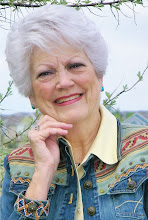So, I'll pass on some writing tips I used in my "Passing On Your Personal Stories" class. These are basic tips to get started in writing.
Beginnings catch the reader's attention and make the reader want to know more. Gives a hint to the problem.
Middles add complications, unexpected happenings, seemingly insurmountable problems, and builds suspense.
Ends resolve everything in a satisfactory way.
Beginnings form the second chance to attract the reader. What is the first? A good title. However, many writers use a working title before they choose that special grabber of a title. Check the titles on your book shelves. Do they hook you to look into the book?
The opening sentence should hook the reader. Starting in the middle of an action creates that hook. Otherwise, begin with one or a combination of action, character, dialogue, situation, setting and mood or Story theme or philosophical idea.
According to Kathleen Phillips in How to Write a Story, some authors think "action and character openings, especially when combined with dialogue are the strongest and best attention getters." She lists on pages 84-85 these examples: Ken Follett's The Pillars of the Earth, E.B. White's Stuart Little, Lloyd Alexander's The Cat Who Wished to Be a Man, Mary Peace's Fireflies, George Orwell's 1984, Daphne du Maurier's Rebecca, Charles Dicken's A Christmas Carol, and Clive Barker's Dread, to name a few.
I suggest you look at books on your shelves or go to a library, randomly choose titles, and read the first lines. Be aware, that not all first lines represent good examples. You make the decision if the line hooks the reader.
After you've hooked the reader, the next few paragraphs should determine the who, what, when, where and why of the story as soon as possible. The "how" details fill in the middle. Let the reader know something about the story.
The next blog will discuss some specifics about middles.



